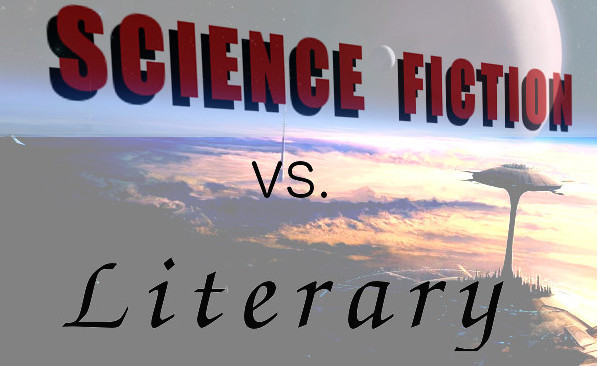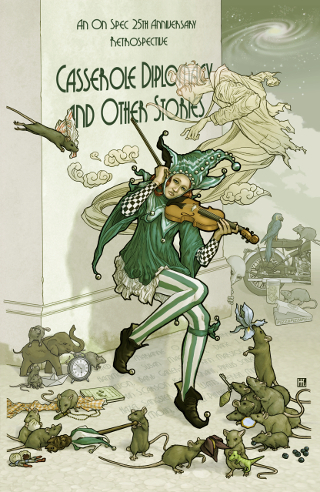TO BE, OR NOT TO BE...LITERARY
/ In my last post I mused about the plight of SF magazine On Spec losing some significant grant money, and whether or not it was partly due to a seemingly eternal stigma borne by genre fiction as compared to literary fiction.
In my last post I mused about the plight of SF magazine On Spec losing some significant grant money, and whether or not it was partly due to a seemingly eternal stigma borne by genre fiction as compared to literary fiction.
I’m a fan of both. I love literary fiction for its deep insight into Life and the evocative language of its prose. I love SF for its startling ideas and the breadth of its imagination. And I especially love it when I discover both “genres” displaying the qualities of the other. That’s happening more and more. There may have been a time when the prose of SF was a bit rough and tumble and the characters somewhat flatly sketched. Even now there’s a lot of space opera that’s basically action/adventure and doesn’t pretend to be anything more (though there exceptions to everything). There’s also a growing wealth of fiction that sets out to do everything literary fiction does, but with more flash.
In Canadian literary circles the immigrant experience has been very big for a few decades. Why not? There’s a lot to be learned about the human condition through the story of the outsider—it reveals the new, while shining fresh light onto the old. I can’t think of a genre that has more stories of the outsider than science fiction. Are the observations somehow less profound, the emotions less valid, the insight less sharp because the outsider is an extraterrestrial among humans, a human among aliens, or a man/woman out of his/her own time? Certainly not. In fact, I would argue that the revelations can be even more enriching, since they not only explore the vagaries of life as we know it can be, but also life as we can barely imagine it to be.
I’m blown away by the exquisitely well-chosen words and phrases of writers like David Mitchell and China Miéville. But recently reading Bowl Of Heaven and Shipstar by Gregory Benford and Larry Niven, I found many tasty passages there too. And they’re considered hard science fiction writers. While literary authors are praised for opening our eyes to both the sweeping vistas and the exquisite minutiae of our world, are such descriptions less magical because they involve objects that only exist in the mind’s eye? Are observations of human nature less poignant because the mirror being held up is a creature of scientific extrapolation or complete fantasy? I don’t see why.
Maybe bookstores will always need to restrict certain kinds of stories to specific shelves for the sake of efficient commerce. For book readers to allow their minds to remain forever bound by such artificial constraints would be a sad state of affairs indeed.
Let’s rejoice in the richness of all fiction, and leave the labelling behind!


